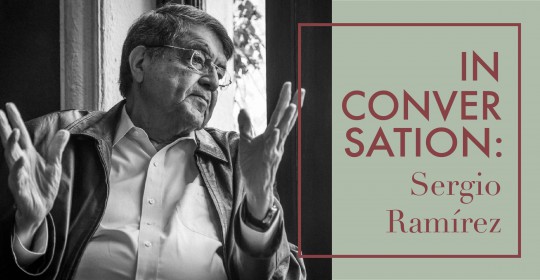Since the late 1950’s people in Nicaragua began actively fighting and opposing the Somoza dictatorship—Anastasio Somoza took power for the first time in 1937. In the mid-1970’s the opposition grew stronger, and in 1979, the Sandinistas came together, and launched the People’s Revolution. Guerrillas, artists, rebels, and civilians united against the somocistas. And on July 19th, 1979, victory was announced. The Sandinista Revolution brought together people like the Cervantes Prize-Winning Author, Sergio Ramírez, the former Catholic priest and poet, Ernesto Cardenal, the poet and novelist Gioconda Belli, and the current Nicaraguan president, Daniel Ortega Saavedra.
Ortega later came to power in 1979 for a four-year period and then again in 2007. He has since become a mirror image of Somoza; he has been in office for more than ten years and has recently silenced, threatened, and killed members of the opposition.
In mid-April of this year, thousands gathered on the streets of Nicaragua to show their discontent against the government of Daniel Ortega and Rosario Murillo, in particular for issues relating to environmental rights, corruption, public health, and lack of transparency. Four months later, the protests have not slowed down and neither has the repression coming from the Policía Nacional de Nicaragua and other orteguistas. Every day, images of bravery and brutality come from Nicaragua. El presidente, who was once part of the Sandinista revolution that ousted the Somoza dictatorship that shackled the country for more than thirty years, has now become a tyrant himself and has betrayed the ideals that he, alongside writers and activists like Claribel Alegría and Sergio Ramírez, fought so diligently for in the seventies and eighties.
Gioconda Belli, one of Central America’s most beloved and important writers, has openly criticized Daniel Ortega and his government. In early August, the poet and novelist won the Hermann Kesten Prize for her outstanding efforts in support of persecuted writers, and she joined the ranks of other prominent writers and Human Rights advocates, such as Harold Pinter and Iryna Khalip.
Belli, who was one of the artists that walked alongside the Sandinista revolution, next to people like Ernesto Cardenal and Carlos Mejía Godoy, says she’s hopeful. “There is always hope,” she says. She also admits she trusts in the Nicaraguan youth that has bravely fought for a fairer society. The revolution, she argues, in the hands of the young men and women marching in Managua, in León, in Masaya, is alive and well. “Whenever you think of tyrants, such as Daniel Ortega, you must remember that their time will eventually come,” she adds. Finally, art, music, and literature, according to Belli, are the tool Nicaragua has to plan for a better future.
More than three hundred people have been killed by the hands of the orteguismo since the protests began, on April 18th. Daniel Ortega has been in power since 2007.
READ MORE…





